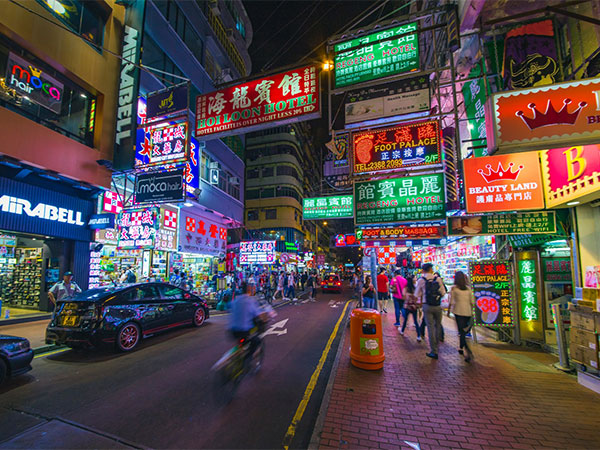

Hong Kong authorities have intensified its new campaign against overseas activists this month, which could give a chilling effect, Voice of America reported citing exiled democracy activists and adding that they are also forcing the in-exiled people to consider additional precautions.
A week ago, the Hong Kong authorities issued an arrest warrant and a bounty of 1 million Hong Kong dollars against eight prominent activists overseas. Days later, four men in Hong Kong were arrested and accused of providing those in exile with support, the report noted.
Earlier, on Tuesday, the national security police raided activist Nathan Law’s family home in Hong Kong and took away his parents and older brother for questioning. They were later released.
Under this new campaign, Hong Kong seems to leave no rebellion. All the eight people, against whom the arrest warrant was issued are residing either in the United States, Australia, and Britain, which do not have extradition treaties with Hong Kong, the moves have clearly raised the stakes, VOA reported.
Alex Chow, a prominent Hong Kong activist and board chair of the Washington-based nonprofit organisation, Hong Kong Democracy Council, told VOA that the new approach “could extend intimidation to people who have nothing to do with the advocacy work done by overseas activists.”
Chow added that Hong Kongers now need to consider some precautions to try to protect loved ones who are still in Hong Kong.
“This is a tough situation for activists abroad because their family members could be used by Hong Kong authorities to pressure them,” he said.
Given the bounties and arrest warrants, some overseas Hong Kongers have even begun to contemplate whether it is still safe for them to engage in activism.
“The diaspora community may feel some pressure and choose not to attend pro-democracy protests abroad,” said Michael Mo, a former district councillor in Hong Kong who now resides in the UK, as per VOA.
Others are already looking for ways to continue to be a part of Hong Kong’s pro-democracy movement and make sure that their participation in activism is more secure.
“I know a lot of groups are exploring different ways by adopting secure precautions, both digital and physical,” said Maya Wang, the associate Asia director for Human Rights Watch. She added that compared to other diaspora communities, Hong Kong people are already more adept at taking precautions to ensure their security.
Chung Ching Kwong, the Hong Kong campaigns coordinator for the Inter-Parliamentary Alliance on China, said that since a lot of threats that overseas Hong Kongers may face are connected to their technology, they should use different tools, including end-to-end encryption and password security to protect themselves and those they are in contact with.
“I see efforts from the diaspora community to educate each other about the importance of digital security, but not enough works have been done and there aren’t enough resources and people with enough know-how to share their knowledge,” Kwong added.
Some experts felt that the foreign government is not helping diaspora communities to maintain the freedom of speech and freedom of assembly, reported VOA.
“If the host governments can’t assure protection of these basic rights, the diaspora community may still think they can be intimidated by Hong Kong authorities, especially if they still have family members back there,” said Eric Lai, a visiting researcher at the Dickson Poon School of Law at King’s College in London.
Over the past year, there have been several cases of Chinese nationals assaulting Hong Kong activists that live in the UK. In June, British police began an investigation after video footage showing pro-Hong Kong demonstrators attacked by a group of Chinese nationals in Southampton.
Last October, a Hong Kong protester was attacked on the grounds of the Chinese Consulate in Manchester. The incident pushed British police to launch an investigation and resulted in Bejing removing six Chinese diplomats who were allegedly involved in the assault from the UK, according to the VOA. (ANI)